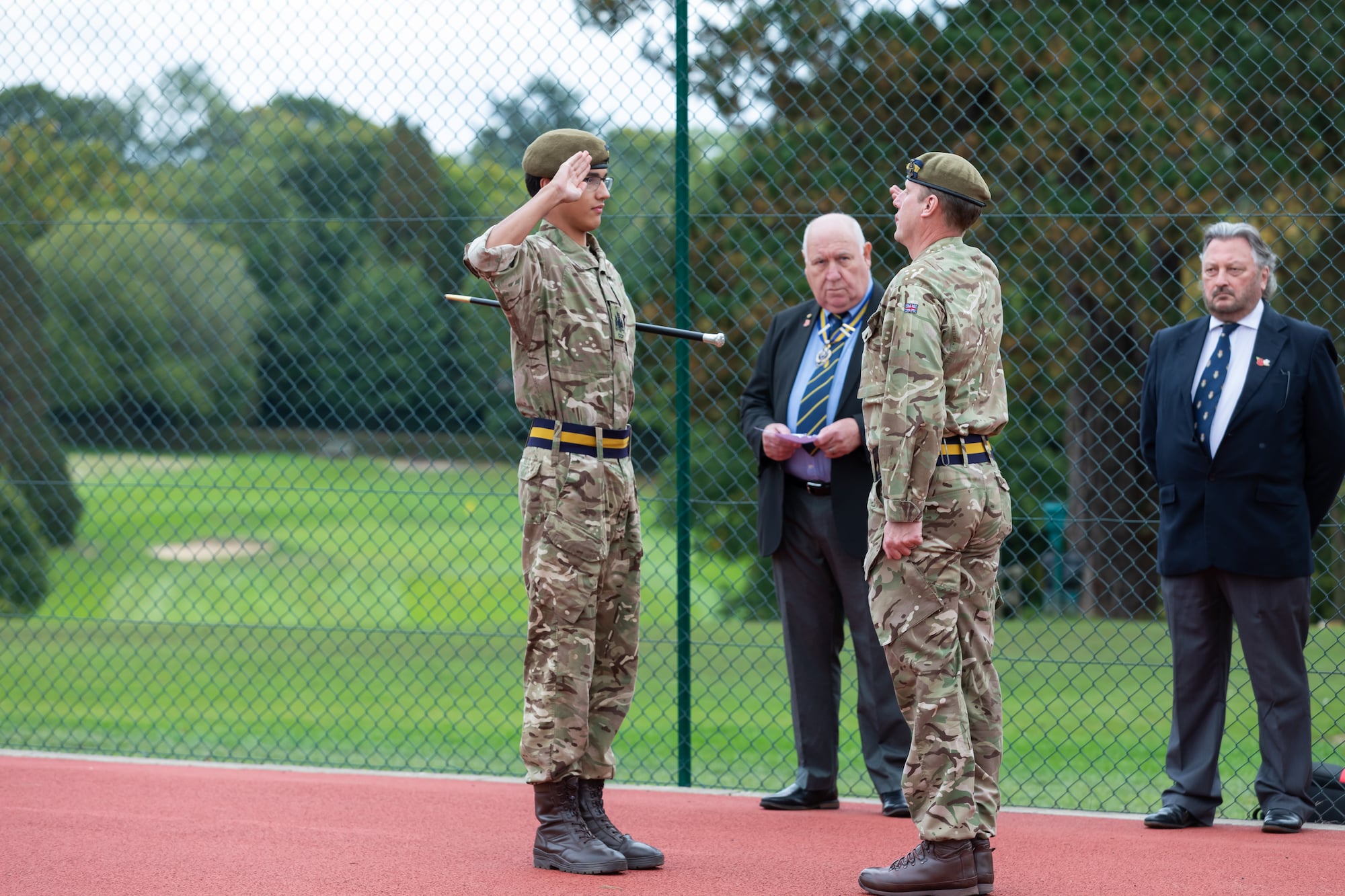The second of the Sixth Form Purvis Society’s lecture series welcomed Dr Vanessa Lawrence CB to the floor. Dr Lawrence is the longest serving CEO of the Ordnance Survey since 1875, and is the only female to have held the post. She now works for, amongst others, the World Bank, where she is Senior Strategic Global Advisor on geospatial issues. Whilst running the OS she was also the founding Co-Chair of the United Nations Committee of Experts on Global Geospatial Information Management. She was appointed as a Companion to The Most Honourable Order of the Bath in the Queen’s New Year Honours List of 2008.
only female to have held the post. She now works for, amongst others, the World Bank, where she is Senior Strategic Global Advisor on geospatial issues. Whilst running the OS she was also the founding Co-Chair of the United Nations Committee of Experts on Global Geospatial Information Management. She was appointed as a Companion to The Most Honourable Order of the Bath in the Queen’s New Year Honours List of 2008.
Beginning with a little bit of personal history, Dr Lawrence encouraged members of the audience to follow their passions (hers, obviously, has always been Geography) and emphasised how wide-ranging the subject actually is and how it underpins every aspect of our daily lives. She pointed out that we are now so used to accessing information that swift and imaginative analysis is something we (almost) take for granted. Mapping has changed, she informed us; modernisation is the watch-word.
Britain is the best-mapped country in the world. The South coast of England was mapped in order to stem invasion by Napoleon and the Ordnance Survey has not stopped since! 10,000 changes are made to the Great Britain master map every day; GPS will acknowledge your location to within 10m, whereas the Ordnance Survey is now working to tolerances in the region of two centimetres…
Warming to her theme, Dr Lawrence then gave a series of examples showing how useful this incredible volume of information could be: the dissemination of information following a road traffic accident; disaster relief; economic and profitable bus routes (East Riding Council saved £160,000 in a year, for instance); security; environmental monitoring; sustainable development. It was apparent that the list was almost endless. “Everything happens somewhere,” she pointed out using the collection of domestic waste as another example to underline how the development of intelligent routes and load maximisation has reduced fuel consumption, in some areas, by 12%.
On a grander scale there is, of course, a massive role for geospatial data to play in international fields. Catastrophic flooding in Australia could have led to a vast number of claims for compensation, but mapping the debris lines and pre-empting the claims defused a political situation that could have proved very embarrassing for the government. Hong Kong is adopting ‘strata geography’ in mapping its high-rise developments at every level and the global market behind the development of ‘smart cities’ is now thought to be worth in excess of $408 billion. Everything in Masdar City (in UAE) is now geospatial, although the measuring and monitoring of cities can provide some significant challenges as was nicely illustrated by transport problems in Rio de Janerio and congestion in Boston, USA.
but mapping the debris lines and pre-empting the claims defused a political situation that could have proved very embarrassing for the government. Hong Kong is adopting ‘strata geography’ in mapping its high-rise developments at every level and the global market behind the development of ‘smart cities’ is now thought to be worth in excess of $408 billion. Everything in Masdar City (in UAE) is now geospatial, although the measuring and monitoring of cities can provide some significant challenges as was nicely illustrated by transport problems in Rio de Janerio and congestion in Boston, USA.
The World Bank has what they are calling ‘The Billion Dollar Map,’ which purports to show mineral reserves in Africa. The resources are huge but mining is inadequate on a local scale and multi-national organisations have, over the years, muscled in. This does not benefit the locals but the release of suitable data to the governments is helping to control the release of these valuable assets more to the greater benefit of the local population, leading in due course to a significant reduction in poverty.
Dr Lawrence was the Head of Geospatial Information for the London Olympics and here she demonstrated the use of the data for, among other things, the extraordinary level of security (over 100 world leaders attended…), travel patterns, train scheduling, the planning of the torch relay route; such data were collected once but used many times… The entire area, a 7km2 boundary zone, and all the other venues were mapped to the 2 cm level of accuracy mentioned earlier.
Dr Lawrence has attended a bewildering array of conferences and discussions, many with worthy objectives, the general overall aim of reducing poverty. Citing Rwanda as an example, she informed us that at one stage, because locals had no rights to the land on which they lived and which they farmed, 96% of women stayed at home (on guard) and 60% of children stayed away from school. Within five years, after an extensive and detailed mapping process, over 10.6 million people had ownership rights so 80% of the women now had proper jobs and only 5% of the children were not at school. She was especially pleased that this astounding success was the result of a British initiative and it certainly is a big step towards poverty reduction.
us that at one stage, because locals had no rights to the land on which they lived and which they farmed, 96% of women stayed at home (on guard) and 60% of children stayed away from school. Within five years, after an extensive and detailed mapping process, over 10.6 million people had ownership rights so 80% of the women now had proper jobs and only 5% of the children were not at school. She was especially pleased that this astounding success was the result of a British initiative and it certainly is a big step towards poverty reduction.
Reaching the end of her time, but obviously raring for a discussion, Dr Lawrence fielded a variety of perceptive questions from the audience before joining a select group for a formal dinner in Hall. Her final point was that she believed the future lay in satellites and their ability to collect unbelievable amounts of data all of which can be employed in a geospatial fashion; already objects slightly smaller than 50 cm in diameter can be clearly distinguished from space!
Dr Christopher Mann
Back to all news











